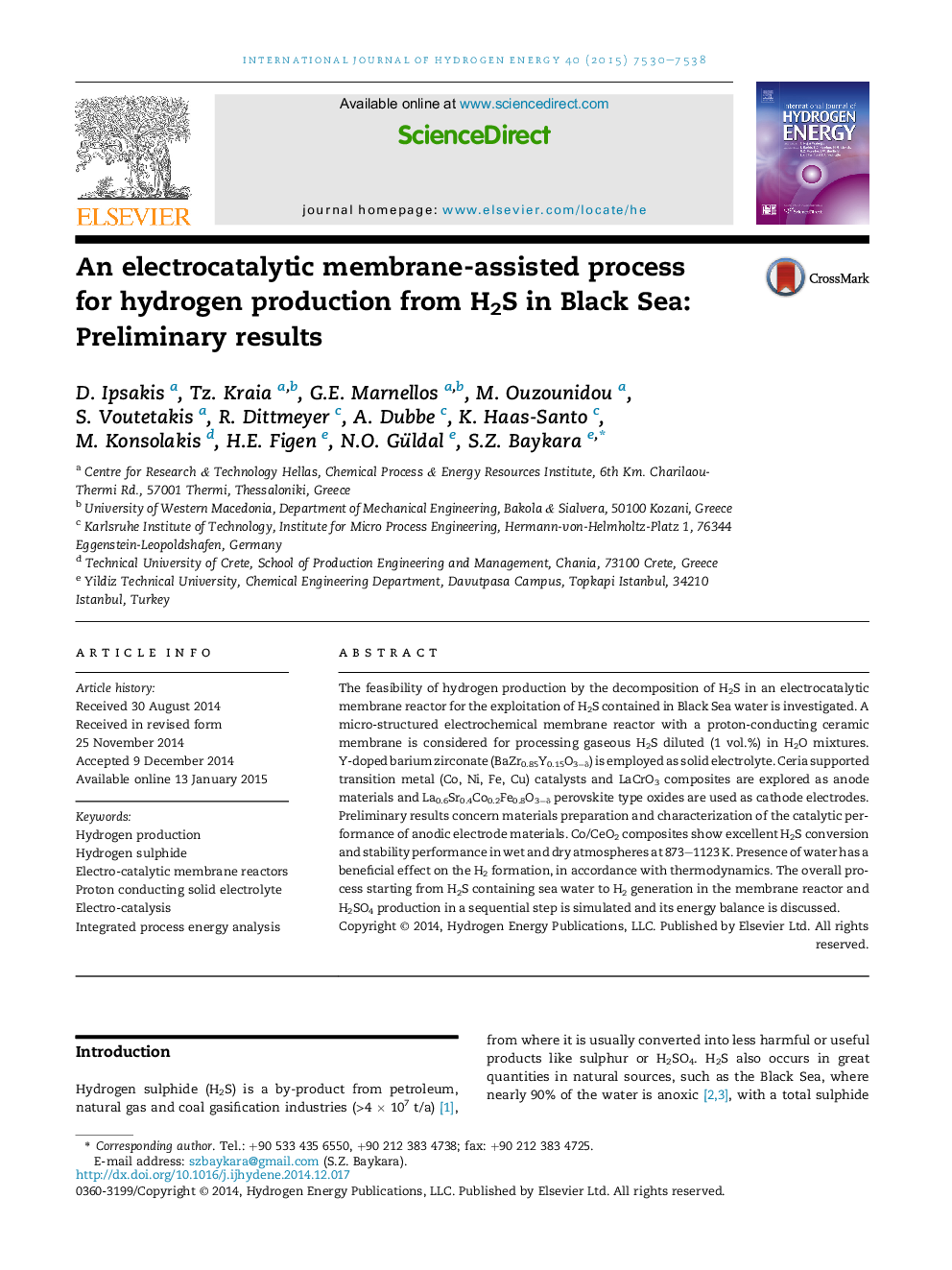| Article ID | Journal | Published Year | Pages | File Type |
|---|---|---|---|---|
| 1279725 | International Journal of Hydrogen Energy | 2015 | 9 Pages |
•An electro-catalytic membrane reactor is proposed to convert H2S/H2O to H2.•Results related to reactor development and cell materials evaluation are presented.•Co/CeO2 exhibited promising activity/stability under “real” conditions.•An energetic analysis for H2 production from Black Sea-H2S/H2O is presented.
The feasibility of hydrogen production by the decomposition of H2S in an electrocatalytic membrane reactor for the exploitation of H2S contained in Black Sea water is investigated. A micro-structured electrochemical membrane reactor with a proton-conducting ceramic membrane is considered for processing gaseous H2S diluted (1 vol.%) in H2O mixtures. Y-doped barium zirconate (BaZr0.85Y0.15O3−δ) is employed as solid electrolyte. Ceria supported transition metal (Co, Ni, Fe, Cu) catalysts and LaCrO3 composites are explored as anode materials and La0.6Sr0.4Co0.2Fe0.8O3−δ perovskite type oxides are used as cathode electrodes. Preliminary results concern materials preparation and characterization of the catalytic performance of anodic electrode materials. Co/CeO2 composites show excellent H2S conversion and stability performance in wet and dry atmospheres at 873–1123 K. Presence of water has a beneficial effect on the H2 formation, in accordance with thermodynamics. The overall process starting from H2S containing sea water to H2 generation in the membrane reactor and H2SO4 production in a sequential step is simulated and its energy balance is discussed.
Graphical abstractFigure optionsDownload full-size imageDownload as PowerPoint slide
